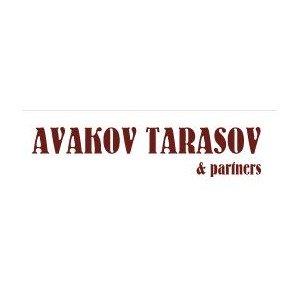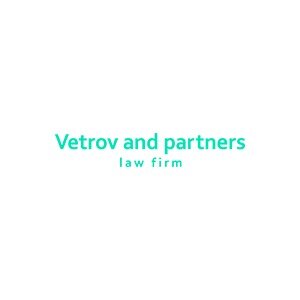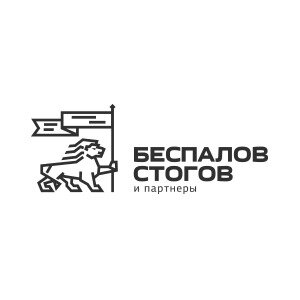Best Government Relations & Lobbying Lawyers in Russia
Share your needs with us, get contacted by law firms.
Free. Takes 2 min.
Or refine your search by selecting a city:
List of the best lawyers in Russia
About Government Relations & Lobbying Law in Russia
The field of Government Relations and Lobbying in Russia is complex and evolving. It primarily involves efforts to influence government policy and decision-making, with the goal of aligning these with specific organization or business interests. Lobbying activities in Russia are often conducted by professionals who strategically engage with government officials, policy makers, and regulatory bodies to promote particular agendas or issues. While the concept of lobbying exists in Russia, it is not as formally regulated as in some other countries, which can create a unique set of challenges for organizations operating within this sphere.
Why You May Need a Lawyer
There are several situations where having legal counsel in Government Relations and Lobbying in Russia can be beneficial. For instance:
- When navigating the intricate legal frameworks that govern interactions with government bodies.
- If your organization needs to ensure compliance with laws and regulations regarding lobbying activities.
- If facing legal challenges or disputes related to lobbying efforts or government relations.
- When crafting a strategy for effective interaction with government agencies and officials.
- For advice on ethical considerations and best practices in government interactions.
Local Laws Overview
Key aspects of Russian laws relevant to Government Relations and Lobbying include:
- Transparency Requirements: While Russia lacks formal lobbying laws, certain activities may require disclosure under broader regulatory frameworks affecting businesses and NGOs.
- Conflict of Interest Regulations: Laws that prevent conflicts of interest in government officials are relevant, as lobbying efforts must avoid inducing unintended bias.
- Ethical Codes: Professional associations and certain sectors may adopt codes of conduct for lobbying practices.
- Foreign Agent Laws: Organizations that interact with foreign entities may have additional registration and reporting obligations.
Frequently Asked Questions
What is the current legal status of lobbying in Russia?
Lobbying is not explicitly regulated by specific laws in Russia, but various existing laws may indirectly affect lobbying activities.
Are there any penalties for illegal lobbying in Russia?
While no direct laws against lobbying exist, improper influence or bribery can lead to criminal charges under Russian law.
How can businesses effectively engage in government relations in Russia?
Engaging in government relations requires strategic planning, understanding cultural nuances, and ensuring all activities are compliant with applicable laws and regulations.
What are the main challenges of lobbying in Russia?
The lack of specific regulations makes navigating legal boundaries difficult, and understanding informal protocols is essential.
Do organizations need to register as lobbyists in Russia?
There is no requirement for a lobbyist registry in Russia, but organizations should ensure compliance with other relevant legal obligations.
What role do NGOs play in Russian lobbying?
NGOs often engage in advocacy or public policy promotion, but they must carefully navigate registration and foreign agent laws.
Can foreign companies legally lobby in Russia?
Yes, but foreign entities might have additional compliance requirements under foreign agent laws.
What is the role of ethical considerations in Russian lobbying?
Ethical considerations are crucial, as they ensure legitimacy and trust are maintained in government relations.
How do I ensure compliance in lobbying activities?
Consulting with a legal expert to align activities with existing regulations and ethical standards is advisable.
Can I engage in lobbying without legal advice?
While possible, obtaining legal advice is recommended to navigate the complex and evolving legal landscape safely.
Additional Resources
For further assistance, you may consult the following entities:
- Russian Ministry of Justice: Provides guidance on legal compliance and registration requirements.
- Russian Association of Legal Experts: Offers resources on ethical standards and legal best practices.
- International Bar Association: Can provide broader insights into government relations practices globally.
Next Steps
If you need legal assistance with Government Relations and Lobbying in Russia, consider the following steps:
- Identify Your Needs: Clarify the scope and nature of your lobbying activities and any legal challenges you face.
- Consult Legal Experts: Engage a law firm or legal expert specialized in Russian government relations to guide you through the process.
- Review Compliance: Ensure all organizational activities are compliant with relevant laws and regulations.
- Develop a Strategy: Work with legal advisors to craft an effective engagement plan with government bodies, ensuring ethical standards are met.
Lawzana helps you find the best lawyers and law firms in Russia through a curated and pre-screened list of qualified legal professionals. Our platform offers rankings and detailed profiles of attorneys and law firms, allowing you to compare based on practice areas, including Government Relations & Lobbying, experience, and client feedback.
Each profile includes a description of the firm's areas of practice, client reviews, team members and partners, year of establishment, spoken languages, office locations, contact information, social media presence, and any published articles or resources. Most firms on our platform speak English and are experienced in both local and international legal matters.
Get a quote from top-rated law firms in Russia — quickly, securely, and without unnecessary hassle.
Disclaimer:
The information provided on this page is for general informational purposes only and does not constitute legal advice. While we strive to ensure the accuracy and relevance of the content, legal information may change over time, and interpretations of the law can vary. You should always consult with a qualified legal professional for advice specific to your situation.
We disclaim all liability for actions taken or not taken based on the content of this page. If you believe any information is incorrect or outdated, please contact us, and we will review and update it where appropriate.
Browse government relations & lobbying law firms by city in Russia
Refine your search by selecting a city.
















